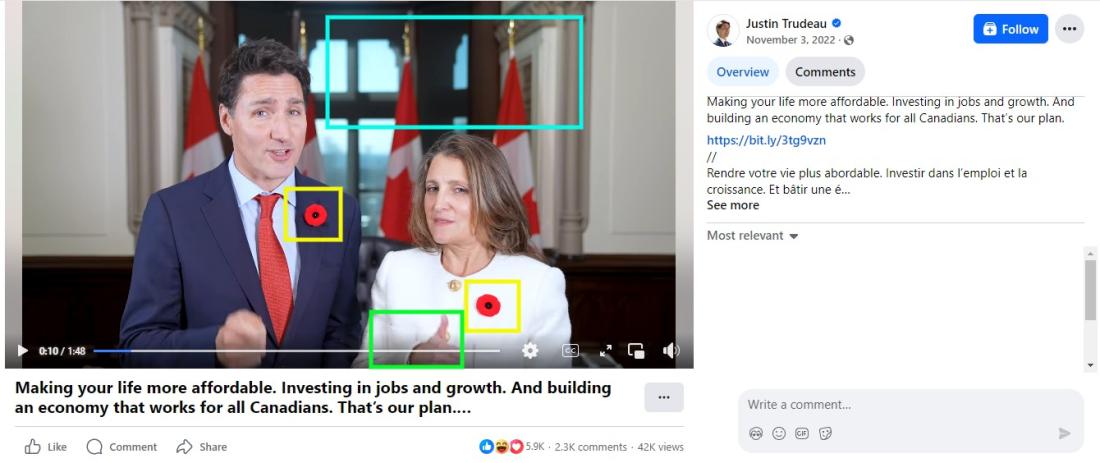
Deepfake of Justin Trudeau used for fake passive income ads
- This article is more than one year old.
- Published on September 26, 2024 at 18:34
- 2 min read
- By Gwen Roley, AFP Canada
"Transform your life with Canada's national financial project," says text over a video posted to Facebook on September 16, 2024.
The clip -- with more than 109,000 views -- appears to show Trudeau and Freeland promoting a passive income program that claims users could earn up to $8,000 to $10,000 weekly.
Another post with the same video was posted a minute earlier by the same account and received some 22,000 views.

While AFP did not find a prompt to seek personal information, the posts are similar to other fraudulent passive income schemes that frequently target Canadians and were previously debunked by AFP. Some fake ads use manipulated videos and images of Trudeau.
The clip of Trudeau with Freeland is unrelated to investments and has been manipulated, AFP found.
A reverse image search reveals the clip shares several visual characteristics with another video published on Trudeau's official Facebook page on November 3, 2022 (archived here) discussing a quarterly economic statement (archived here) with Freeland, who is also Canada's finance minister.


In the original video, Trudeau and Freeland comment in English and French about eliminating federal student loans and lowering credit card fees but never mention passive income schemes or a "national financial project."
The speech in the September 2024 video has been altered from the original and the movements of Trudeau's mouth do not fully sync, indicating it is a deepfake.
The page sharing the ads also exhibits suspicious characteristics. Its Page Transparency section reveals it is managed from the United States and is currently running ads.
Meta's Ad Library -- the company's repository of promotions across its platforms -- shows the page is running another ad with a different version of the manipulated video.
All the ads lead to different versions of what appears to be a blog discussing investment options in Canada. The website includes a contact page with an email, phone number and an unverified address in the US state of New Mexico.
AFP was unable to determine the motive for the ads, but they had the hallmarks of other deceptive marketing schemes targeting Canadians.
According to the credit monitoring TransUnion, Canada has seen a rise in fraudulent investment schemes, while local media have reported a rise in general phone and online scams.
AFP has previously debunked other fake Facebook ads targeting Canadians.
Copyright © AFP 2017-2026. Any commercial use of this content requires a subscription. Click here to find out more.
Is there content that you would like AFP to fact-check? Get in touch.
Contact us
